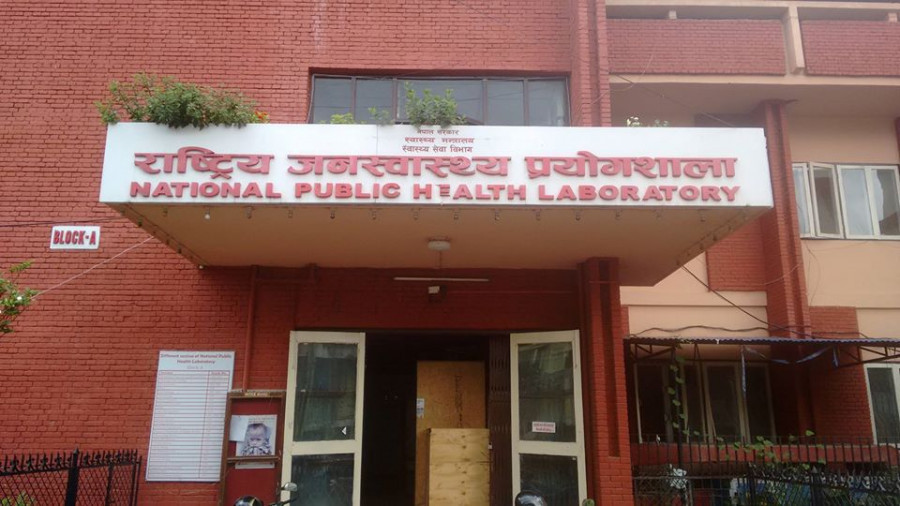Health
Superspeciality cancer diagnostic tests to start soon
Hospitals are currently sending samples to India for testing, resulting in long waits for the reports.
Arjun Poudel
In a bid to provide reports of cancer testing at the earliest, the National Public Health Laboratory has been working towards starting a superspeciality cancer diagnostic testing.
“We are working to start superspeciality services at our laboratory to test cancer,” said Dr Runa Jha, director at the laboratory. “Some work to start the test is already done and the rest will be carried out in the coming days.”
Due to a lack of such a service within the country, hospitals treating cancer patients have had to send samples to India for testing, the report of which takes several days to come.
Patients who are suspected to be suffering from cancer as well as their relatives have to anxiously wait for the test report to confirm the ailment.
The superspeciality cancer diagnostic tests include advanced genomic testing, which helps doctors determine treatment options, genetic testing, complete blood count tests, flow cytometry and liquid biopsy. Officials at the laboratory, however, did not specify if all diagnostic services would be available at the laboratory or only some of them.
Hospitals treating patients with cancer have been sending samples from the patients to India, for years. It takes three days for some reports to come and five and seven days in the case of other tests.
“Patients and their relatives get extremely worried when they hear about cancer,” said Dr Sandhya Chapagain, an oncologist at Bir Hospital. “We tell them that it takes 10 days, as getting the report from India always takes time.”
Doctors say that if the National Public Health Laboratory starts superspeciality cancer diagnostic testing, the patients and their relatives will get reports on time, which will help doctors start treatment early. Starting treatment on time makes a big difference in recovery from cancer, according to doctors.
Chapagain, who is also a board member of the Nepal Medical Council, the national regulatory body of medical doctors, said establishing laboratories in the country also helps maintain database, genomic confidentiality as well as privacy.
“We do not have our own database and have had to send the genomic samples of our people abroad every day,” said Chapagain. “Maintaining a genomic database is very important. It is needed for various purposes, including research and in making policies in dealing with the disease burdens. Huge money is also going abroad for testing.”
Doctors say specimens collected in medical settings, like blood and tissue taken during biopsies, can serve as excellent sources of samples for genetic and genomic research. Scientists can extract DNA from residual de-identified blood spots taken as part of the newborn screening public health programme, to conduct epidemiological, population-based or other studies on wide-ranging topics such as infectious diseases to birth defects.
Experts say starting superspeciality cancer diagnostic testing services at the government centre is a good initiative. They also said some tests for cancer diagnosis were costly in the absence of enough samples to test at any one time.
“If the government lab starts the services, they will get sufficient samples from across the country, which will reduce the cost,” said Chapagain.
Doctors say a proper diagnosis is key to effective treatment, as every type of cancer requires specialised treatment. Treatment of cancer basically includes radiotherapy, chemotherapy and surgery.
In Nepal, dedicated cancer hospitals and hospitals with oncology departments have been allocating a few beds to cancer patients and hiring doctors for their treatment.
Jha, the director of the National Public Health Laboratory, said that such hospitals should also invest in diagnostic services, which include advanced laboratory and other radiology services.
Oncologists say all diagnostic services are not required at every cancer treatment centre, as testing is costly and all such centres do not get enough samples. They also said that hospitals can be encouraged to start superspeciality services through tax concessions.




 11.38°C Kathmandu
11.38°C Kathmandu















